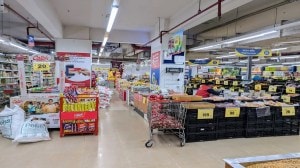Treatment of neonatal jaundice, diabetic retinopathy, diagnosing respiratory diseases, sickle cell anemia, etc sound quite common for medical practitioners. However, there are startups and voluntary organisations which are now leveraging data and artificial intelligence to help patients and have been recently awarded by Infosys Foundation, the philanthropic arm of IT major. Since AI technology writes codes which are predictive as they are based on data sets, the application in these fields will help in early identification of such problems and also provide help on a continuous basis.
Take the case of IIT Hyderabad-based MedTech startup HeaMac, which has come up with an AI-based phototherapy device “nLite 360” to treat neonatal jaundice in babies more efficiently.
Akitha Kolluju, cofounder, HeaMac, said, that they have done an algorithm based on current medical guidelines. “Our device identifies the babies’ conditions and based on the risk level, it customises the therapy doses for them,” said Kolluju.
Similarly, AI-based start-up Swaasa, analyses human coughs to identify if there is any kind of abnormality in the lungs. Swaasa uses audiometric analysis to decode the information extracted from cough sounds and other vital information to provide insights into the wellbeing of the lungs.
Another startup, Smaft Health Global (SHG) Technologies is helping the visually impaired to overcome their visual disabilities.
Seetharam Muthangi, CEO and cofounder, SHG Technologies, said, “Broadly there are three types of visual impairment — people with no vision, low vision and individuals who are losing vision”. The Smart Vision Glass is an AI-enriched assistive device that helps people with visual disabilities to read their favourite books, magazines and newspapers, identify Indian currency notes, be independently mobile while being able to identify things around them, among other things.
Muthangi, added, “The camera that is attached to the glasses takes the pictures and the bluetooth neck band relay the information to the person’s ears”. Muthangi’s idea of a smart glass sprang after her elder sister suffered from diabetic retinopathy.
A not-for-profit organisation that is involved in providing toilets to families living in slums, Shelter Associates has created ‘One Home One Toilet’ – a data-driven model focused on facilitating sanitised household toilets for the underprivileged urban women.
It has till now facilitated over 27,000 quality home toilets impacting positively over 150,000 people across seven cities of Maharashtra, said, Pratima Joshi, founder and executive director of Shelter Associates.
She added that they map houses using google plus code – a system to create a unique identification number. Shelter Associates also works in partnership with urban local bodies (ULBs) for construction of drainage lines.








